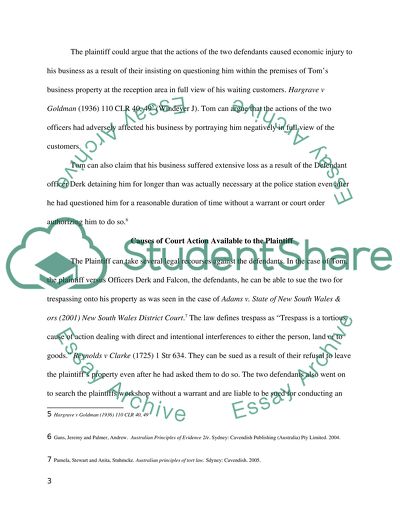Cite this document
(“Law on Torts in Australia Essay Example | Topics and Well Written Essays - 1500 words”, n.d.)
Law on Torts in Australia Essay Example | Topics and Well Written Essays - 1500 words. Retrieved from https://studentshare.org/law/1456436-torts-law-australia
Law on Torts in Australia Essay Example | Topics and Well Written Essays - 1500 words. Retrieved from https://studentshare.org/law/1456436-torts-law-australia
(Law on Torts in Australia Essay Example | Topics and Well Written Essays - 1500 Words)
Law on Torts in Australia Essay Example | Topics and Well Written Essays - 1500 Words. https://studentshare.org/law/1456436-torts-law-australia.
Law on Torts in Australia Essay Example | Topics and Well Written Essays - 1500 Words. https://studentshare.org/law/1456436-torts-law-australia.
“Law on Torts in Australia Essay Example | Topics and Well Written Essays - 1500 Words”, n.d. https://studentshare.org/law/1456436-torts-law-australia.


